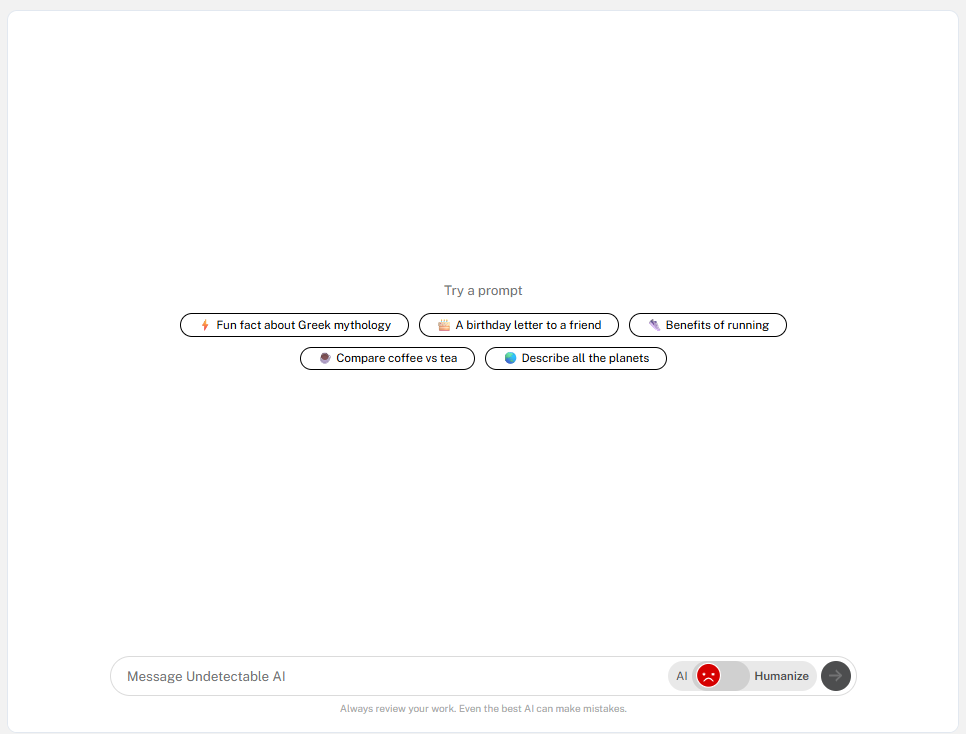Have you ever wondered why people say “I need a book” instead of “I need book” or “Have you seen the movie?” instead of “Have you seen movie?”
Well, the reason is articles. You should be aware of the right time and way to use articles in your speech and writing.
In all honesty, nobody knows it all.
Therefore, it is not wrong not to know how and when to use articles in a sentence.
Read on to learn all about article meaning and how to use them like a pro.
Key Takeaways
- Articles are short words that help us understand how specific or general something is.
- Words such as a, an and the are articles.
- Articles come before nouns.
- Articles indicate a specific or a general noun.
- Articles are of two types, definite and indefinite.
What Is an Article in Grammar?
Think of an article as a very small but important screw used to assemble a crib. That is what an article is. An article in grammar is a tiny word that helps to bring meaning to a sentence.
Articles are how we understand if a person is talking about something specific or general.
They are words that come before a noun. It helps you know that a word is a noun without describing it.


Never Worry About AI Detecting Your Texts Again. Undetectable AI Can Help You:
- Make your AI assisted writing appear human-like.
- Bypass all major AI detection tools with just one click.
- Use AI safely and confidently in school and work.
For example, ‘Chris ate an Apple’, the article ‘an’ here indicates that the word apple is a noun.
There are only three articles in English grammar. They are:
- A
- An
- The
Articles ‘a’ and ‘an’ refer to something indefinite or general. While ‘the’ refers to something specific.
Think of articles as road signs that guide you on the flow of a sentence. In their absence, sentences would lack sense and would be confusing.
Examples of Articles
Here are some examples of articles:
- The dog was barking. ‘The’ shows we are referring to a particular dog.
- I watched a film last evening. ‘A’ means that the speaker may be referring to any movie.
- She ate an apple for breakfast. ‘An’ refers to any apple and not a particular one.
- The book on the table is mine. This describes a particular book in a specific location.
Definite and Indefinite Articles

Now that you have learned that a, an, and the are articles. You need to know what kind of articles they are.
There are two types of articles, and they are:
What Is a Definite Article?
A definite article is used in reference to particular things or groups.
A definite article may also be used to show that something is unique and there is only one of them.
You can use definite articles to talk about something only you and the listener know about.
The only definite article in English Grammar is ‘The’. The article ‘the’ is used with singular and plural nouns.
It is also used with countable and uncountable nouns, provided that the noun is specific.
To give an example, when you say, the car is there you are referring to a car at a given location. Something that you and the listener know.
Other examples of definite articles are:
- ‘We went to the museum by the lake’
- ‘I read the book you spoke about’
Here, both listeners know exactly which museum or book you’re talking about.
What Is an Indefinite Article?
When ‘a’ or ‘an’ is used before a noun, you are not talking about a certain noun but making a general statement.
They are also used when you are talking about something not previously mentioned.
The indefinite articles are applied when addressing things that neither the listener nor the speaker is aware of their identity.
When you say a or an in front of a noun, you are not referring to a specific noun; you are saying something in general.
They are likewise applied when you are speaking about something that was not discussed initially.
Here are examples of sentences that contain indefinite articles:
- ‘An apple a day keeps the doctor away’
- ‘A dog is barking’
- ‘She is reading an interesting book’
- ‘Linc is a teacher’
When to Use “A,” “An,” and “The”
Here are instances when you can use ‘a,’ ‘an,’ and ‘the’:
When to use ‘a’
‘A’ is used for words that start with a consonant or consonant sounds. For example:
- A dog
- A mouse
- A bag
- A University (University starts with a vowel but has a consonant ‘y’ sound)
When to use ‘an’
‘An’ is used for words that begin with vowels or vowel sounds. For example:
- An egg
- An hour (h has a vowel sound)
- An elephant
- An MBA (it sounds like “em-bee-ay”)
When to use ‘the’
‘The’ is used in the following instances:
- When you are talking about something both you and your listener know
- When you are talking about something specific
- When you mentioned it before
- When there is only one. For instance, the moon or the president
- When it is clear from context what you mean
‘The’ can also be used with proper nouns that include an “of” phrase. For example:
- The United States of America
- The Hall of Fame
You can also use ‘the’ with superlative adjectives. Such as:
- The first
- The biggest
- The next,
- The only one
Another instance where you can use ‘the’ is when a noun can be made specific from a previous statement. This is also known as a second or subsequent mention.
Example:
My sister bought a dog. I am looking after the dog while he is at work.
Common Rules for Article Usage

Articles are important in sentences. So you should know when, how, and where to use articles.
Here are common rules for article usage:
- Singular Countable Nouns: In cases where you want to make sentences containing singular countable nouns, be sure to use articles. You cannot just say ‘Dog is barking.’
- Plural Nouns: When it comes to writing sentences where the nouns used are in the plural, one must add an article. As an example, ‘The dogs in my street are friendly’. Note, there are situations where you do not need an article. You can simply say, “Dogs are friendly”, especially when you are not specific.
- Uncountable Nouns: The uncountable nouns do not require you to use the articles always. For instance, you can say ‘I love music’ and not ‘I love a music’. But when you want to discuss a particular thing, you can say, The music at the party was too loud.
- Proper nouns: You are not obliged to use articles with proper nouns. For example, you can say ‘John is coming here.’ However, there are exceptions like saying ‘the United States’ or ‘the Smiths are coming here.” That way, you are referring to a whole country or the entire Smith family.
- Adjective: The rules of article usage do not alter as far as adjectives are concerned. You should use the right article when a noun is modified by an adjective. For example, ‘It is a small gift’ or ‘Burj Khalifa is the tallest building.’
- Sound: The sound of the letter after the article should determine the article to be used. Use ‘a’ for consonant sounds and ‘an’ for vowel sounds.
Article usage in English does not follow a specific rule.
You have to know the right article to use based on what your sentence is trying to communicate.
There are also idiomatic expressions that require the use of an article. For instance, ‘to give someone a hand’ or ‘to kick the bucket.’
When Not to Use Articles
Yes, articles are important. However, you don’t have to use them all the time. Sometimes the best article is no article at all.
Articles should be used when making:
- General Statements: ‘Life is Beautiful,’ ‘Water is Important,’ or ‘Cats have eyes that see in the dark’
- Statements With Plural or Uncountable Nouns: ‘Teachers are essential’ or ‘Some sweets wouldn’t hurt’
- Statements About Meals: ‘We had breakfast’ or ‘Let’s have lunch.’ Although ‘the lunch was delicious’ would work if you are talking about a specific meal.
- Statements About Languages: ‘He speaks French’ or ‘I study Spanish’
- Statements About Subjects: ‘She studies chemistry’ or ‘I like maths’
- Statements Involving Certain Expressions: ‘Go to school’ or ‘go to bed.’ Alternatively, you could also say ‘go to the school now’ if you are talking about a particular school known to the listener.
- Statements About Abstract Concepts: ‘Love Conquers All’
- Statements Involving Sports: ‘She plays Tennis’ or ‘Luke loves football’
- Statements with Possessive Pronouns: Possessive pronouns include his, my, our, its, her, and their. They completely replace articles. For example, ‘We went to their house’ or ‘I drank his water’
In case you feel lost about how to use an article correctly, here are the two things that you should keep in mind:
- You have to use an article in case the noun is singular and countable and is not specified.
- You don’t have to use an article when the noun is plural and uncountable and is written in a general and non-specific way.
Perhaps you are unsure about articles or grammar in general; you can always use the Undetectable AI Chat to get answers to your questions.

We also have tools that are helpful for your school projects. Our Ask AI tool can help you brainstorm ideas and explain tricky topics.

Don’t leave without exploring our AI Detector and Humanizer in the widget below!
FAQs
Here are frequently asked questions about article usage:
Is “The” An Article?
Yes, absolutely. “The” is an article, and it is a definite article.
That is, it is used to describe specific things or people. It is also used to describe something you have spoken to the listener or reader about previously.
Can I Use “An” Before a Consonant?
No. However, in cases where the consonant has a vowel sound, using an can be permitted. For example, ‘an hour’ or ‘an honour’
Why Do Some Sentences Have No Articles At All?
Not all sentences need an article. Sentences with plural and uncountable nouns do not need an article.
In addition, some sentences that contain some of the expressions like, God is good, do not require any article to be complete.
What’s the Difference Between Articles and Determiners?
Articles and determiners are two terms that modify nouns, but they are used differently. Determiners consist of articles, quantifiers, and demonstratives.
They provide further details of the noun, i.e., who it belongs to, the number of the same, or the definiteness of it.
They are also applied to explain which noun is used and how it is related to other elements of the sentence.
Words that can be considered determiners are:
– Some
– My
– His
– That
– Those
– Which
– Whose
– All
– Few
– Its
– Each
– All
In short, articles are a form of determiner, and determiners are words that give a kind of information concerning a noun.
Conclusion
Articles may look small and insignificant, but they are actually important.
They aid clear communication. So it is vital that you understand article definition and meaning.
Articles make your speech and writing sound more natural.
The more you know about articles, the better you are with the English language, particularly when you are not a native English speaker.
You do not need to worry about getting it immediately. The greatest English speakers have to take time to ponder whether to use an article in a sentence or not.
Just remember that it is just ‘the’ to be specific, and ‘a’ and ‘an’ to be general.
The use of a and an is interchangeable depending on the pronunciation and not on the spelling. Keep practicing, and using articles will be as smooth as a walk in the park.
Need help making your English writing sound clear and natural? Try Undetectable AI today.
